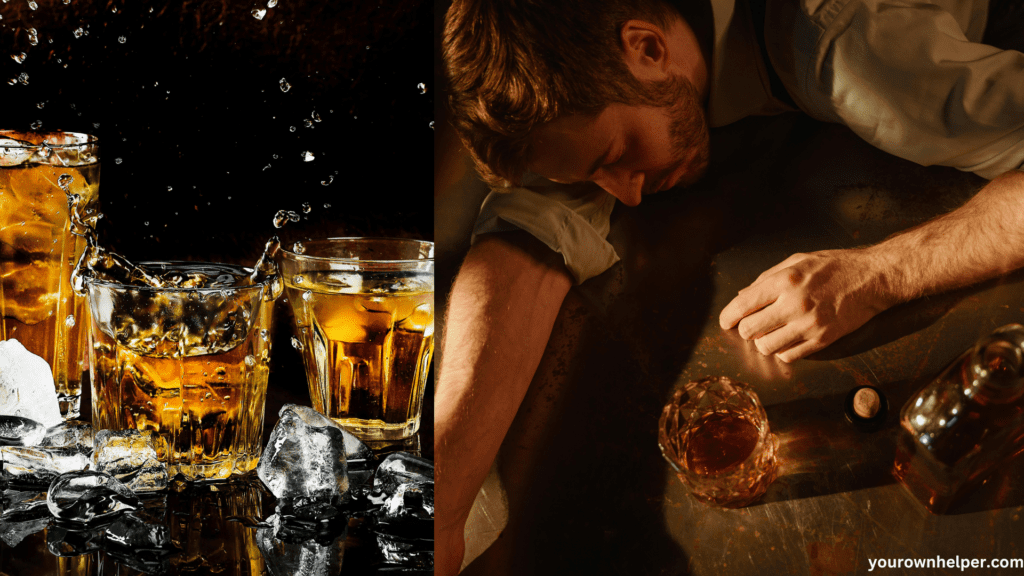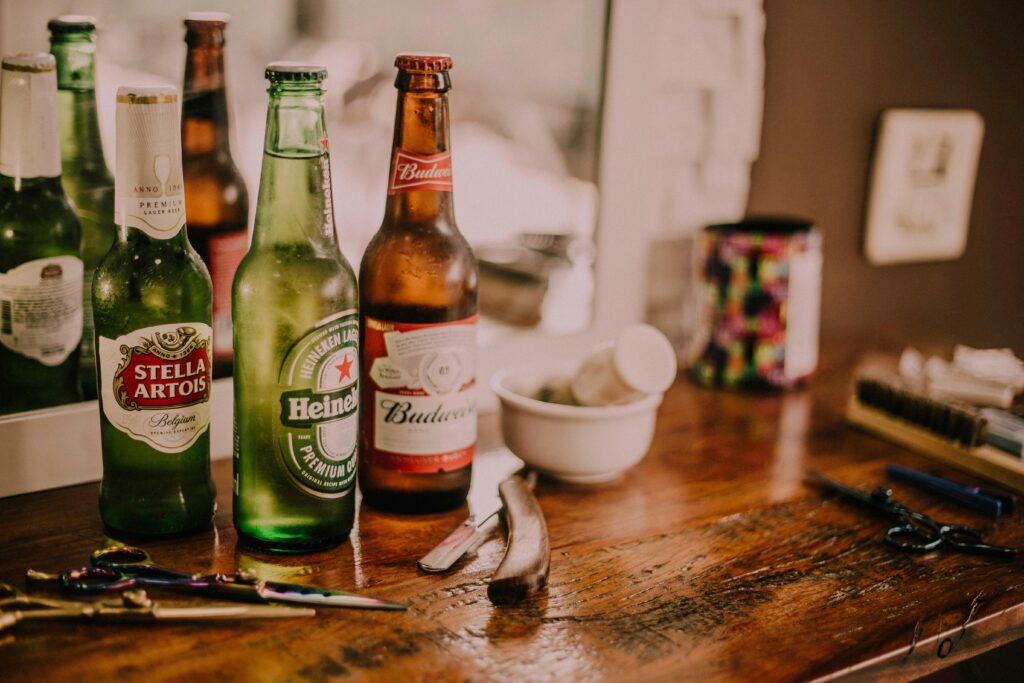
You’ve finally decided it’s enough. Your life has gotten out of control, and drinking has become an addiction. The idea of living without alcohol scares you, yet you know you have to make a difference. Recovery is possible. With the correct assistance, determination, and support system, you may overcome your addiction and return to living life on your own terms. This article walks you through alcohol withdrawal symptoms, treatment choices, support groups, and lifestyle adjustments to get you started on the road to recovery. You’ll also find answers to frequently asked questions concerning alcoholism and addiction, which will help you better understand your situation.Though the path ahead seems daunting, take that first step. A happier, healthier life awaits you on the other side.
Understanding Alcohol Addiction and Withdrawal
Defining Addiction
Addiction is a complex disorder defined by obsessive substance use or behavior, notwithstanding the negative effects. It is often characterized by a lack of control, cravings, and continuous use despite detrimental consequences to physical health, emotional well-being, relationships, and other aspects of life. Addiction can affect substances like drugs or alcohol, as well as behaviors like gambling, gaming, or shopping. It is frequently chronic and recurring, necessitating multidisciplinary treatment techniques to address underlying causes and facilitate recovery.
Physical Dependence
If you’ve been drinking heavily for a long time, your body has become physically dependent on alcohol.That means when you stop drinking, you’ll go through withdrawal as your body adjusts. Withdrawal symptoms like nausea, sweating, and tremors can be uncomfortable, but the good news is they’re temporary.Medications and medical supervision can help make detox safer and easier.
Psychological Dependence
Alcoholism is also a mental health issue. Your mind has come to rely on the fleeting pleasurable feelings that alcohol delivers. Even after a detox, the desire to drink might be strong.Overcoming psychological addiction includes changing your attitudes and behaviors around alcohol. Counseling and support groups are beneficial to many people.
Breaking the Cycle
Overcoming an alcohol addiction is difficult, yet people do it every day.The goal is to make a firm commitment to your sobriety and devise a strategy to avoid triggers, cope with cravings, and make lifestyle changes. accomplish not try to accomplish it alone. Inform your family and friends about your aim and request that they check in on your progress. Consider counselling or joining a support group. They may hold you accountable and offer support. Every day without booze is an accomplishment. Maintain focus on your aim. Celebrate tiny victories along the road.
Alcohol withdrawal symptoms
Alcohol withdrawal symptoms can range in intensity based on the individual’s level of dependence, frequency of alcohol usage, and overall health. Typical alcohol withdrawal symptoms include:
- Anxiety: A state of anxiety, restlessness, or disquiet.
- Insomnia: Difficulty falling or staying asleep.
- Tremors:Tremors are the shaking or trembling of the hands or body.
- Sweating: excessive perspiration, especially at night.
- Nausea and vomiting: An upset stomach and vomiting.
- Headaches: throbbing headaches or migraines.
- Increased heart rate: A fast heartbeat or palpitations.
- High blood pressure:elevated blood pressure values.
- Irritability: It is the tendency to become frustrated, agitated, or angry quickly.
- Confusion: It refers to difficulty concentrating or thinking clearly.
In severe situations, alcohol withdrawal can cause more significant symptoms such as hallucinations, seizures, and delirium tremens (DTs), necessitating emergency medical intervention. Individuals suffering alcohol withdrawal symptoms should seek medical attention immediately, as withdrawal can be severe and even fatal in extreme situations. Medical personnel can offer supportive care, medicine, and monitoring to help control symptoms and guarantee a safe detoxification procedure.
Dealing With Alcohol Cravings and Relapse Triggers

Find alternatives to replace the habit
When a craving hits, have a plan In place to avoid relapse. Do some light exercise like going for a walk, doing yoga, or call a friend. Keep your hands and mind busy with a hobby, like woodworking, gardening or baking. The craving will pass within a few minutes,so find ways to ride it out without taking that first drink.
Avoid triggers
Know your triggers and stay away from them. Maybe it’s hanging out with certain friends who still drink, or stopping by your favorite bar after work. Make new routines and habits that don’t Involve alcohol. Plan social activities that don’t revolve around drinking like going out for coffee, seeing a movie or volunteering.
Have a support system
Don’t go through this alone. Tell family and friends that you plan to stop drinking so they can offer help and encouragement. Consider joining a support group, either in-person or online. Speaking with others struggling with alcohol addiction can help keep you accountable and provide motivation during rough times.
Deal with stress in healthy ways
Stress, anxiety and depression can trigger the urge to drink. Develop new strategies for coping with stress such as exercising, meditation, or talking to a therapist. Take a yoga class or learn deep breathing techniques. Making self-care a priority will help boost your motivation and resilience.The road to overcoming alcohol addiction is challenging, but by building a strong support system, avoiding triggers and finding healthier habits and coping strategies, you can beat those cravings and stay committed to your sobriety. Stay focused on your goal and be kind to yourself. You can do this.
Adopt a healthy lifestyle
Exercise, eat well, get adequate sleep, and prioritize self-care. Exercise is an excellent way to release excess energy and tension. To help your body recuperate, eat a well-balanced diet and drink enough of water. Aim for 7–8 hours of sleep per night. Practice soothing activities such as yoga or meditation. Taking good care of oneself will increase your motivation to remain sober.
FAQs: Answering Common Questions About Alcohol Addiction
What are the signs of alcohol addiction?
Some common signs of alcohol addiction include:
•Drinking more or for longer than Intended
•Unsuccessful attempts to cut down or quit drinking
•Spending a lot of time drinking or recovering from drinking
•Giving up or reducing activities because of drinking
•Continuing to drink even though it causes problems with relationships, work, health, or the law.
what is nicotine?
Tobacco plants contain nicotine, a naturally occurring stimulant. It is highly addictive and is best known for its use in tobacco products like cigarettes, cigars, and chewing tobacco. Nicotine boosts the release of adrenaline, which causes an increase in heart rate, blood pressure, and alertness. It also influences the brain’s reward system, resulting in sensations of pleasure and relaxation. However, nicotine is linked to a variety of health hazards, including addiction, cardiovascular disease, respiratory problems, and an increased risk of cancer.
who would most likely develop an alcohol addiction in adulthood?
Several variables contribute to the emergence of alcohol addiction in adulthood. These include genetic susceptibility, environmental effects including family history and peer pressure, as well as psychological elements like stress, trauma, and mental health disorders. Individuals who have a mix of these variables are more likely to develop alcohol addiction later in life.
what is the first step toward getting treatment for alcohol addiction?
Recognizing and acknowledging the problem is frequently the first step toward seeking treatment for alcoholism. This may entail acknowledging to oneself or others that alcohol consumption has become problematic and seeking assistance. Once awareness has been established, individuals can take proactive activities like as seeking assessment and guidance from a healthcare professional, counselor, or addiction specialist. Seeking support from friends, family, or support groups can also help you get started on your recovery journey. Finally, the first step is to make a commitment to change and seek help to overcome alcohol dependence and its associated issues.
Conclusion
Overall, quitting an alcohol addiction is difficult, but you can do it. Take it one day at a time, rely on your support system, and be gentle with yourself along the journey. Over time, it will become easier. And imagine how proud you will be looking back, knowing you broke free from alcohol’s hold. You are stronger than any addiction. Believe in yourself, and consider all of the possibilities that may emerge once alcohol is no longer a barrier. If you keep on track, the path ahead will lead you to light, health, and happiness. You have the inner strength to live your best life. Now go and let it shine.
